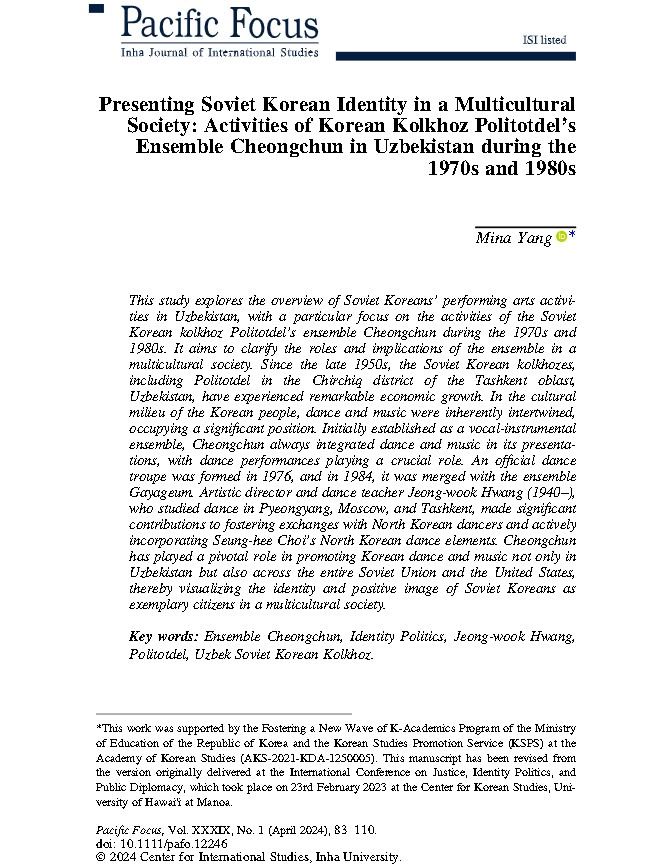논문
논문
Presenting Soviet Korean Identity in a Multicultural Society: Activities of Korean Kolkhoz Politotdel's Ensemble Cheongchun in Uzbekistan during the 1970s and 1980s (양민아)
- 작성일 2024.07.02
- 작성자관리자
- 조회수749

논문초록
This study explores the overview of Soviet Koreans’ performing arts activi-ties in Uzbekistan, with a particular focus on the activities of the SovietKorean kolkhoz Politotdel’s ensemble Cheongchun during the 1970s and1980s. It aims to clarify the roles and implications of the ensemble in amulticultural society. Since the late 1950s, the Soviet Korean kolkhozes,including Politotdel in the Chirchiq district of the Tashkent oblast,Uzbekistan, have experienced remarkable economic growth. In the culturalmilieu of the Korean people, dance and music were inherently intertwined,occupying a significant position. Initially established as a vocal-instrumentalensemble, Cheongchun always integrated dance and music in its presenta-tions, with dance performances playing a crucial role. An official dancetroupe was formed in 1976, and in 1984, it was merged with the ensembleGayageum. Artistic director and dance teacher Jeong-wook Hwang (1940–),who studied dance in Pyeongyang, Moscow, and Tashkent, made significantcontributions to fostering exchanges with North Korean dancers and activelyincorporating Seung-hee Choi’s North Korean dance elements. Cheongchunhas played a pivotal role in promoting Korean dance and music not only inUzbekistan but also across the entire Soviet Union and the United States,thereby visualizing the identity and positive image of Soviet Koreans asexemplary citizens in a multicultural society.
원문은 아래 링크(Wiley Online Library, Pacific Focus)에서 확인 가능합니다.
첨부파일
-
 Mina_Yang.jpg (198.7KB / 다운로드 15회)
다운로드
Mina_Yang.jpg (198.7KB / 다운로드 15회)
다운로드




